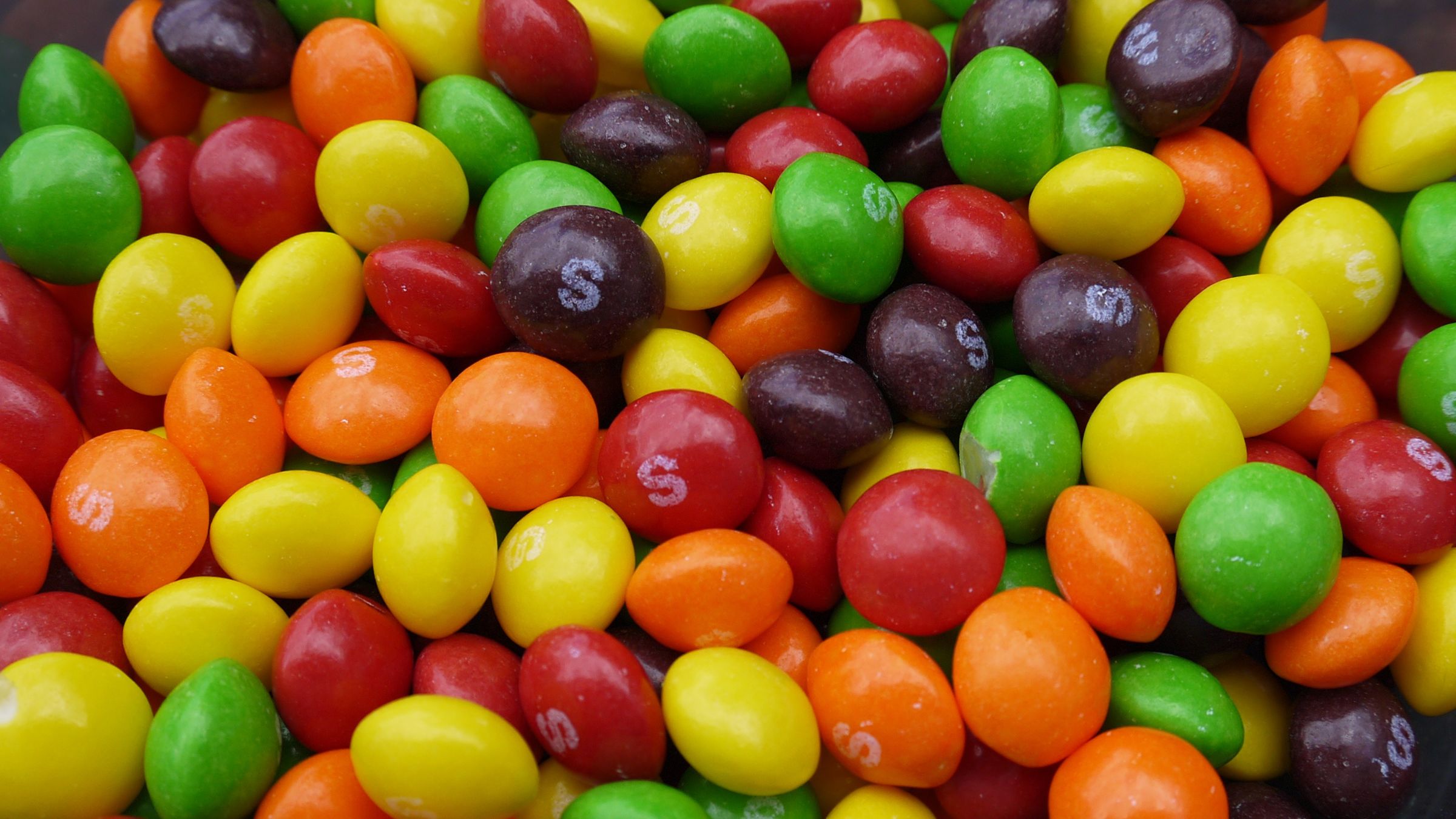Lawsuit Alleges Skittles Contain an Ingredient 'Unfit for Human Consumption'

(Photo: GettyImages)
In my humble opinion, Skittles are the elite movie theater candy. When I’m throwing them back during a breathtaking romance – Minions: The Rise of Gru – I’m not thinking about what’s inside a Skittle. So when I read about a recent lawsuit filed against Mars, Inc brand Skittles alleging an ingredient in the candies is unsafe, my stomach flip-flopped. And I mean that in the literal sense, as my earlier remark about snacking during the Minions movie was very true.
A consumer filed the lawsuit on the grounds that Skittles contain titanium dioxide (TiO2) and have no warning label for the ingredient on the candy’s packaging. TiO2 is a white, powdery mineral used as an additive for color and preserving the shelf life of some packaged food. It can sometimes be found in foods like chocolate, baked sweets and chewing gum, as well as toothpaste, paper, paint and more. In Skittles, TiO2 is used to give the candy a white base before coloring for a bright, shiny hue. The FDA allows for a food product to contain up to 1 percent titanium dioxide without the need to disclose on the ingredient label.
While evidence isn’t yet conclusive, some food safety experts are skeptical of this mineral. In 2021, The European Food Safety Authority announced it did not consider TiO2 safe when used as a food additive and a full ban on the use of the ingredient in food takes effect on August 7, 2022
“Taking into account all available scientific studies and data, the Panel concluded that titanium dioxide can no longer be considered safe as a food additive,” Professor Maged Younes, Chair of the EFSA’s Panel on Food Additives and Flavorings, said in a statement from the body announcing the decision. “A critical element in reaching this conclusion is that we could not exclude genotoxicity concerns after consumption of titanium dioxide particles. After oral ingestion, the absorption of titanium dioxide particles is low, however they can accumulate in the body.”
Genotoxicity means a chemical may cause damage to the body’s DNA, in this case potentially due to building up in very small amounts over time. That damage can be linked to cancers and other health concerns.
“That doesn’t mean [titanium dioxide] is carcinogenic,” Tom Neltner, a chemical engineer and the senior director of the Safer Chemicals Initiative at the Environmental Defense Fund, told NPR. “It just means we’ve got to be careful, and the fact that it gets into the body and is retained in the body is important.”
So far, the U.S. hasn’t taken steps to ban the use of titanium dioxide in food. Mars representatives have stated that the formulation of Skittles aligns with all regulations set by the U.S. Food and Drug Administration.
According to the Center for Food Safety, Mars announced a plan in 2016 to voluntarily phase out the use of the additive across its product line, however the source statement cited by the Center for Food Safety now appears to have been removed from the Mars corporate website. Clean Eating contacted representatives from Mars for comment, but did not hear back prior to publication of this story.
Elizabeth Shaw, RDN, notes concerns surrounding TiO2, but is wary of ‘canceling’ brands or products based on troubling headlines alone.
“The ingredient in question is actually used in a variety of food products as well as medicine and supplement capsules,” she notes.“Truthfully, we have to stop thinking as a society with the automatic notion that food is ‘toxic.’ I advise people to think about the totality of their diet, what they eat on a regular basis.”
RELATED: Lawsuits Allege Beyond Meat ‘Misleads Consumers’ About Nutrition Facts
Get more of what you love from VT. Follow us on Instagram, Facebook